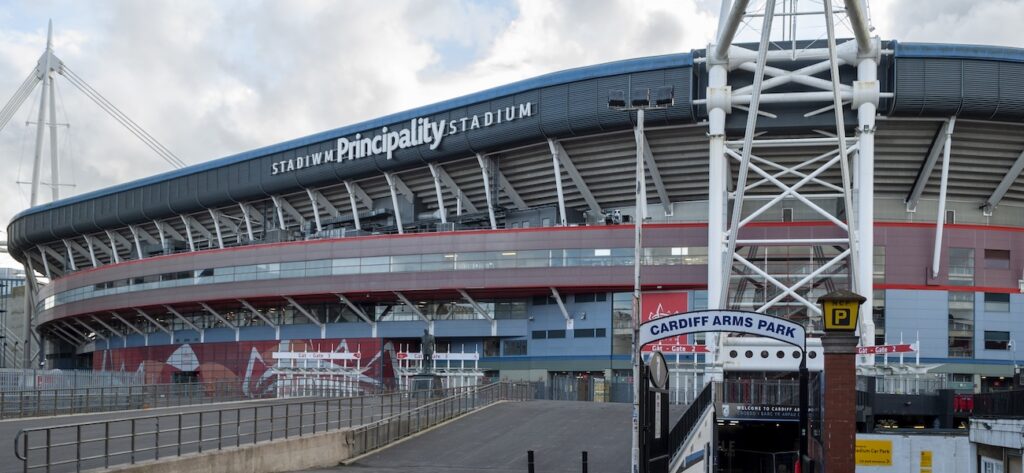The NFL’s Washington Commanders will return to the District of Columbia after reaching an agreement to build a new 65,000-seat stadium on the site of the team’s former home, RFK Stadium.
DC Mayor Muriel Bowser announced yesterday (Monday) that a deal has been struck with the Commanders to transform 180 acres of land on the RFK campus. The Commanders spent 35 years at RFK Stadium before moving to Northwest Stadium in Maryland in 1997.
The Commanders’ deal to play at Northwest Stadium runs until September 2027 and the team has been weighing up its options, with Maryland and Virginia also expressing an interest in becoming the long-term home of the franchise.
It has now been confirmed that the Commanders will return to DC and play at a state-of-the-art roofed stadium that will anchor a wide-ranging campus featuring housing, parks and recreation, hotels, restaurants, retail and neighbourhood amenities.
The stadium is expected to open in 2030 and will occupy just 11% of the entire site. The Commanders will bear responsibility for the stadium build and will also activate and develop multiple parcels of land around the facility through restaurants, entertainment venues, hotels, housing, green space and more.
The Commanders will drive the investment of at least $2.7bn (£2bn/€2.37bn) to build the year-round stadium and related improvements. The DC Government will invest $500m for stadium and horizontal and non-vertical costs from the Sports Facilities Fee (formerly known as the Ballpark Fee).
By leveraging dedicated funds from the Sports Facilities Fee, the District will not need to make any cuts from the city’s operating budget. The District will facilitate parking development using a $175m revenue bond, which will be funded by in-stadium activity once the new stadium is operating.
Events DC will also contribute up to $181m for parking garages near the community recreation facilities, which Events DC will own. The District has also committed to providing $202m for utilities infrastructure, roadways and a WMATA transit study.
The campus is expected to create around 5,000 to 6,000 housing units, including at least 30% affordable housing. The District will look to preserve and continue to operate the popular Fields at RFK site and build a new sportsplex to host year-round youth events and tournaments.
The District has also committed to developing a new Kingman Park District which will include housing, mixed-use development, and open space and recreational space. It is expected that around 14,000 jobs will be created during the stadium construction, with 2,000 permanent jobs to be generated.
The project still requires approval from the DC Council, and it is hoped that work on the stadium could begin in the second half of 2026.
A rendering of the new stadium was revealed during yesterday’s event to announce the project. In January, KaTO Architecture, a design studio based in Boston, Virginia, revealed eye-catching timber-based plans for a repurposed RFK Stadium. KaTO is not formally contracted with the DC or the Commanders but has submitted its proposal to both parties.
“We are thrilled to welcome the Commanders back home to the Sports Capital,” said Bowser. “We said that we could do it all – Commanders, housing, park space, recreation, retail, entertainment and more – and, together, that’s what we are delivering.
“When we got control of 180 acres of land on the banks of the Anacostia, we knew right away that partnering with the Commanders would be the fastest and surest route to bringing the RFK campus to life. As we focus on the growth of our economy, we’re not only bringing our team home, but we’re also bringing new jobs and new revenue to our city and to Ward 7.”
Josh Harris, managing partner of the Commanders, added: “Today is a defining moment for the DMV and the Washington Commanders. RFK Stadium holds a legendary place in our history – it’s where the team dominated the NFL, capturing three Super Bowls and creating unforgettable memories for fans.
“Now, we have the opportunity to honour that legacy by building a new world-class stadium – one that is also a once-in-a-generation catalyst for uplifting and transforming our region. Working hand-in-hand with District and community leaders, we’re focused on delivering an incredible home for our players and fans, creating a landmark venue that reflects the pride of our nation’s capital, and sparking a new era of economic opportunity across the DMV. RFK was once a place our fans loved, and opponents feared – we’re determined to make it that way again.”





